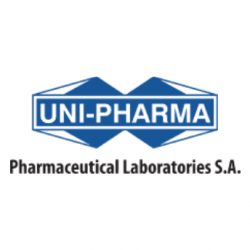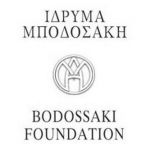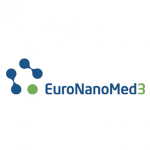School of Dentistry
Director: Professor C. Pantos, Coordinator: Professor A. Tyligada
Pharmacology Ι (5th Semester)
Content
Introduction to Pharmacology - Pharmacodynamics (molecular targets of drugs, agonists-antagonists, potency, efficacy) - Pharmacokinetics (absorption, distribution, metabolism, excretion) - Drug interactions – Drug Adverse Effects – Drugs of the autonomic nervous system – Drugs of the respiratory track - Cardiovascular system drugs - Gastrointestinal system drugs (antacids, inhibitors of gastric secretion, gastroprotective, antiemetic drugs) –Drugs of CNS (antidepressants, anxiolytics, hypnotics, anti-parkinsonian, anti-epileptic drugs) - General and local anesthetics.
Learning Objectives
The student upon completion of the course should:
- Describe and understand the basic principles of Pharmacodynamics and Pharmacokinetics.
- Be familiar with the principles governing the patient's pharmaceutical approach to dental practice, including drug interactions and side effects.
- Describe and understand the pharmacology of the autonomic nervous system and smooth muscle fibers.
- Describe and understand the pharmacology of the cardiovascular system.
- Describe and understand the pharmacology of the respiratory system.
- Describe and understand the pharmacology of the Gastrointestinal system.
- Describe and understand the pharmacology of the central nervous system.
- Describe and understand the pharmacological properties of general and local anesthetics.
Pharmacology ΙΙ (6ο Semester)
Content
Pharmacology of inflammation and pain (non-steroidal anti-inflammatory and narcotic analgesics, paracetamol) - Medicines for allergic conditions (H1 antihistamines) - Basic principles of antimicrobial therapy - Antibiotics - Antifungals - Antineoplastic Chemotherapy Drugs and targeted antitumor therapy - Immunoregulatory drugs - Biological agents - Pharmacology of the endocrine system (corticidoids, antithhyroid, estrogen, androgens, antiestrogens, contraceptives, antidiabetic drugs) - Pharmacology of special populations (children, the elderly, pregnant and lactating women, chronically ill) - Individualized treatment, comorbidities and drugs - Principles of prescribing drugs - Pharmacovigilance - Clinical Trials in pharmacology.
Learning Objectives
The student upon completion of the course should:
- Be Familiar with the principles governing the application of the principles of pharmacology to the patient's pharmaceutical access to dental practice, including population-specific groups and individualized treatment.
- Describe and understand the pharmacological properties of drugs administered in allergic conditions and be familiar with the principles of drug allergy.
- Describe and understand the pharmacology of inflammation and pain.
- Describe and understand the basic principles of antimicrobial therapy and the pharmacological properties of antibiotics, antifungals, antiprotozoals, anthelmintics and antiviral drugs.
- Describe and understand the principles of antineoplastic chemotherapy and anticancer therapy.
- Describe and understand the principles of immunopharmacology, with an emphasis on immunomodulatory drugs and biological agents, including monoclonal antibodies.
- Describe and understand the pharmacology of the endocrine system.
- Understand the principles of prescribing drugs and the importance of pharmacovigilance.
- Be Familiar with the principles of clinical trials in pharmacology.












